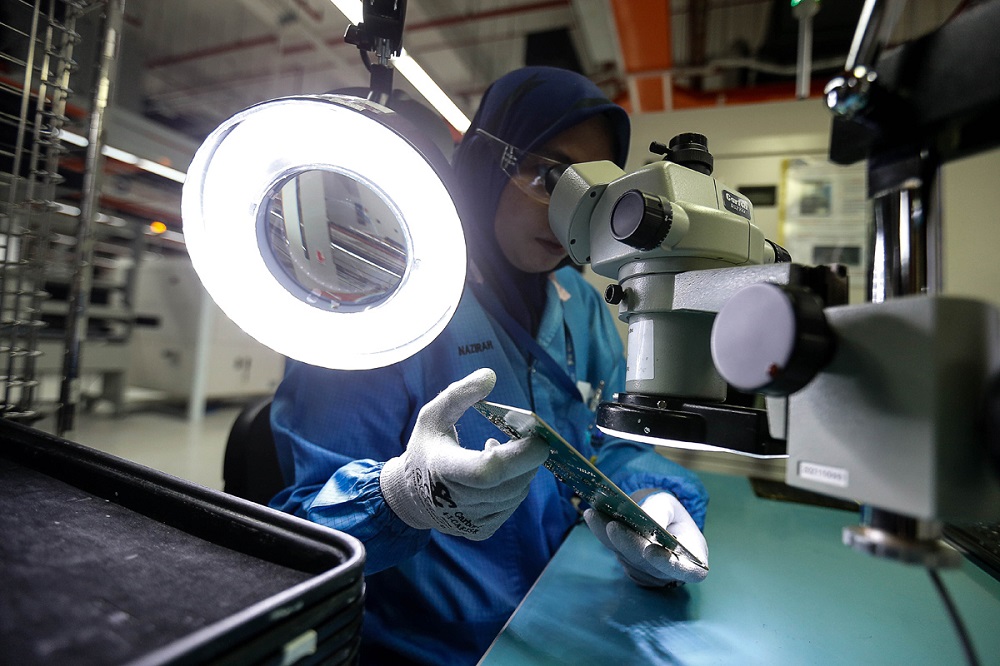GEORGE TOWN, Nov 12 — The manufacturing sector is expecting a drop in productivity of between 5 and 10 per cent during the conditional movement control order (CMCO), said Federation of Malaysian Manufacturers Penang branch chairman Datuk Ooi Eng Hock.
He said the CMCO will reduce productivity as some industries still required their employees to work in the factories but some were forced to work from home due to the CMCO.
“In some industries, the workers can work from home and they’ve been able to do it successfully but in some, it is not as efficient as compared to the workers going in to work in the factories,” he said.
Although the CMCO does not affect the logistics of people going to work, some companies are strict with their SOPs so some workers were instructed to work from home especially if there are cases near their homes.
“Some companies are careful, they will require their workers to work from home if there are cases within a 1km radius from their homes,” he said.
He said there is also the issue of whether the workers’ access to high speed internet, or lack of, can support the industry needs.
“If they can only get 3G coverage at home, how are they going to download large files for work? This will affect productivity,” he said.
He said it is time that the government urgently looks into upgrading internet and telecommunication infrastructure in all areas, especially those living in rural areas.
He said there is a need for good internet coverage for all houses, regardless of location, if the government is serious about going into a knowledge-based economy.
In addition to this, some foreign workers tested positive for Covid-19 and large groups of workers had to be quarantined as a result.
“This spike in cases among foreign workers compounded the whole situation,” he said.
He said there are about 200,000 people working in the Bayan Lepas Free Industrial Zone and out of that, about 30 per cent are foreign workers.
There are over 788 factories, small and large, located in the Bayan Lepas Free Industrial Zone.
Ooi said the manufacturing sector, particularly non-medical related sectors such as those manufacturing garments and construction materials, is struggling to stay afloat now.
“Since July, these companies are only seeing 30 to 40 per cent recovery sales and slowly recovering from the impact of the MCO in March,” he said.
He said these companies still have to service their loans and cover their overhead costs but with up to only 50 per cent in sales, the revenue was barely covering these costs.
Fortunately, he said the banks and financial institutions have been helpful in providing these industries the space and time with regards to servicing their loans.
“We do know many companies are suffering, especially small medium enterprises that are focused on the local market, but so far, we’ve not heard of these companies closing down in Penang,” he said.
He said there are other sectors that are doing well during this period such as the medical industry, those making gloves and masks and the supply chain for these sectors.
He said it is time that the local SMEs looks to targeting the export market instead of only targeting the local market.
He said the SMEs need to balance out their sales between the export and local markets so that they can survive.
When asked about the impact of the CMCO on the sales and revenue of the sector, Ooi said it is still too early to gauge but hoped it would not further dampen the sector’s chances of recovery.






















